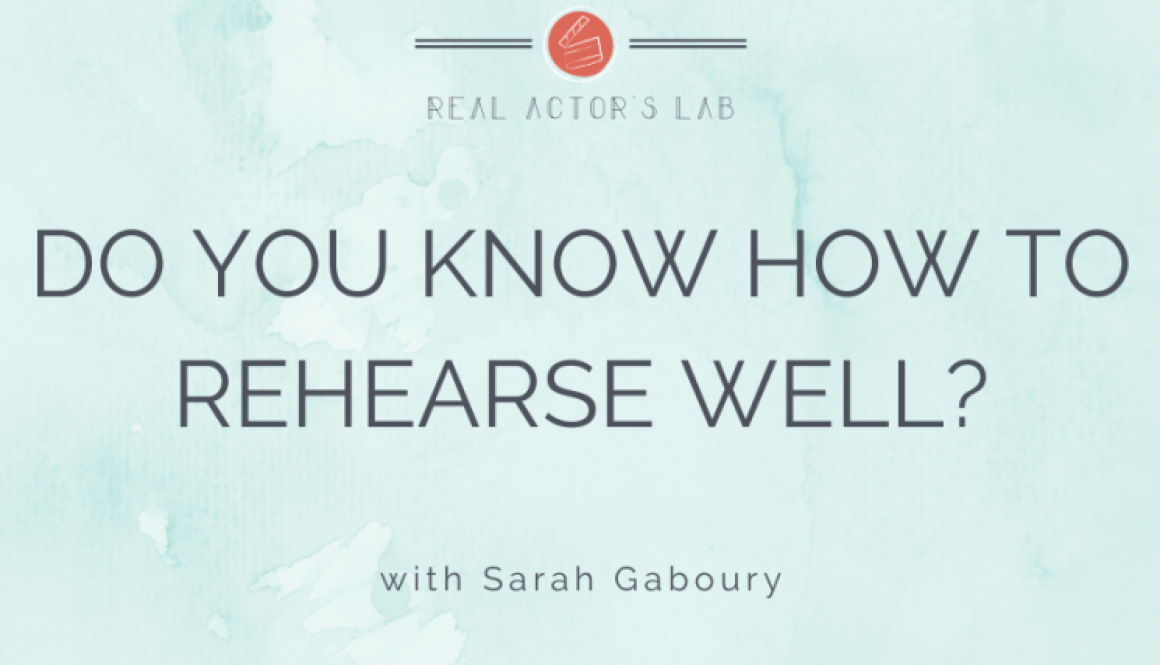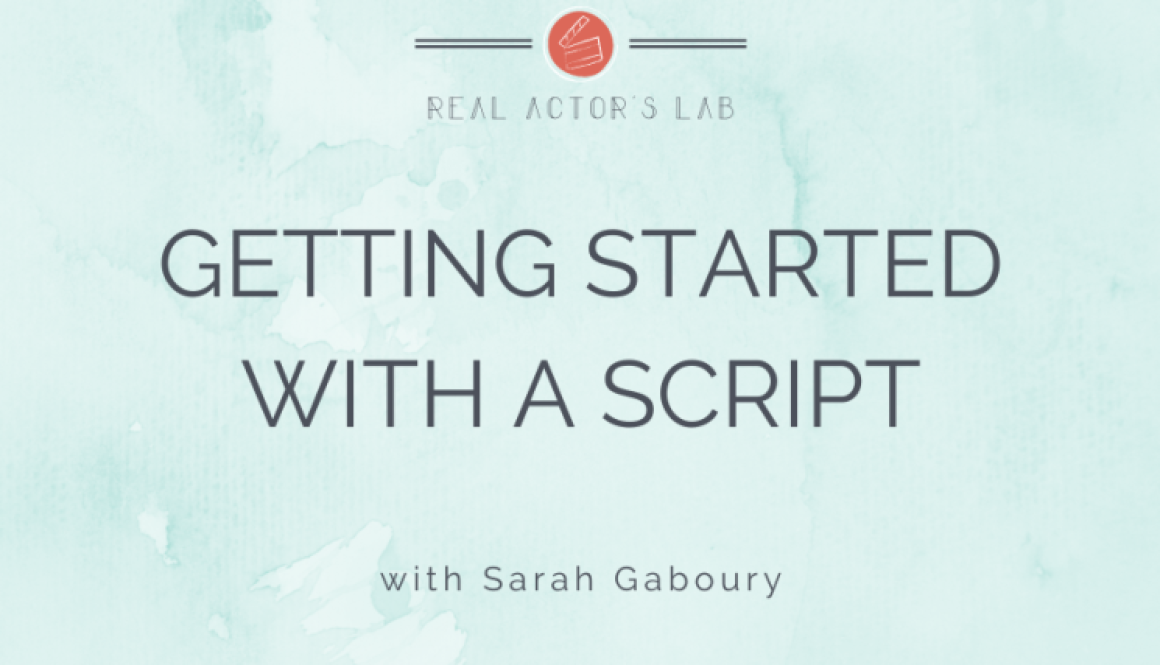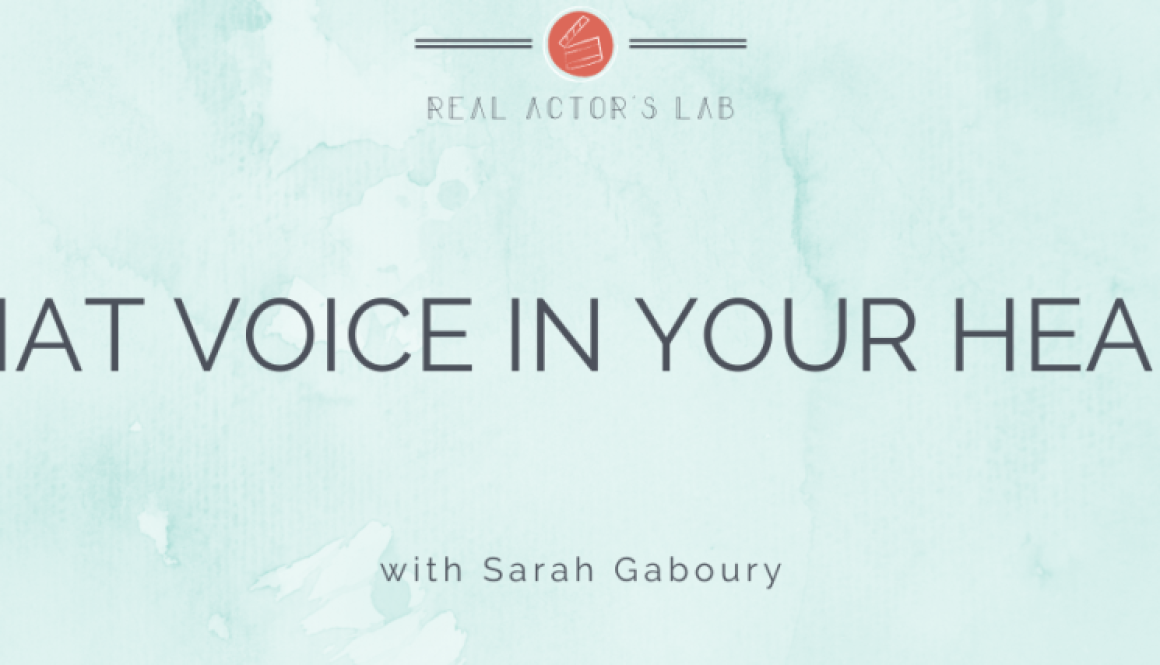Let’s talk about how to rehearse for your auditions and scenes
“Rehearse how you’re going to perform.” I bet you’ve heard that one before. But perhaps also rehearsal can be an opportunity to intentionally rehearse how you won’t ever perform.
Here’s an example:
Say you’re stabbing the other character with your action, right? What happens if you expand that action and stab them at a 10, impulse alive, with your whole body and voice engaged? Maybe you would never actually do the scene that way, but when you explore how that feels, you can pop it back down to a 2 or a 3 and sometimes inside the impulse feels like a 10.
However you choose to rehearse, do get on your feet. If all you do is sit, write and think, when the time comes to work, you may find that all that beautiful stuff you found got stuck on the page.
Sarah: When you’re rehearsing, are you sitting down and kind of in your head and writing stuff down, or are you—what are you doing?
Student: When I rehearse, I’m usually in this room right here, and I’m sitting down. I have everything all opened up, I have my book here, I have the scene here on the floor, I have, you know, my verbs right next to it, and I’m just like sitting. And I break down the beats, and I’m looking this over, so I’m constantly moving, not just standing. But it’s weird because I’ve definitely rehearsed before standing, but for some reason I just usually sit and stay seated, but I should stand.
Sarah: It doesn’t necessarily have to be —what I mostly mean is out loud.
Student: Okay.
Sarah: So that it’s not—I just did an Instagram post about this because it’s been coming up, where, you know, sometimes for too long the works stays internal, and in your head and writing stuff down and even writing backstory and things, which is helpful, it’s still really helpful, but you also at the same time, wanna be trying stuff out loud, because it’s literally a different part of your brain that processes speech that also processes writing. Those are two different parts of the brain. So sometimes what happens when you’re doing a lot of that headier, scholastic writing kind of prep, then when you go to work, sometimes you realize, like, oh, it’s not there. You know, where is it?
Student: Ahh, that’s true.
Sarah: It’s both, you know. And that’s part of why I’m excited for you to get to some of these other experiments that we’ve been doing, because a lot of it is about getting it in your body. And even going too big, like “too big,” but still connected to an impulse, a real impulse, so that you can see what it feels like in a really expanded form—using your body, actually on your feet—what happens if I’m really elbowing somebody with my verb, you know? And I expand it out as big as possible, and then I slowly bring it back to a tiny, where I’m really, the dial is turned way down. So I would encourage as you continue to kind of develop this process, and it sounds like you’re carving out some good time for you, because you’re 100% right, and I really do believe that there’s no way for you to learn how to do this by thinking about it, right? It’s 100% doing it, doing it, doing it, doing it, doing it, doing it, which is why I love…I used to not even offer the every other week option (and that was partially just a pandemic-related thing) but wanting people to just get in, because I do, I think that regular accountability every week of showing up and saying, I’m gonna keep on track, I’m gonna rehearse every day, I’m gonna put it in my body, so that you can really feel what that feels like to not only play an action, but to see what happens when you send it. Does it land? All my attention is on the other person, and i’m listening with my whole body, and I’ve also learned how to let go of all of that work, I’ve learned how to build a rich story about this person’s life and all the circumstances, and then to free fall and let it go and to play. And there’s no way to do that without—and it sounds like you know this—without just doing it and doing it and doing it and doing it and doing it and getting a ton of experience doing it.



